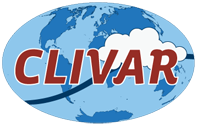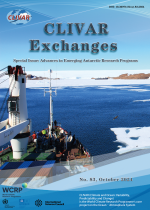ICPO attended the Workshop on ‘Building an international Transparent Ocean Community’

A workshop on ‘Building an international Transparent Ocean Community’ was organised by the Pilot Qingdao National Laboratory for Marine Science and Technology, in Qingdao, China on 19th January 2020, attended by around 50 participants from research institutes in Australia, China, Côte d'Ivoire, France, Germany, Italy, Japan, Russia, UK and USA as well as international programmes/projects (e.g. POGO and CLIVAR). Jose Santos and Jing Li from the ICPO attended the workshop and took part in the discussion on the pathway to take the Transparent Ocean Initiative into international community. Suggestions from the ICPO included: to link more closely with international project offices based in China (e.g. ICPO, IMBeR IPO, SOLAS, Future Earth Coast, etc); and to strengthen the link with existing global and regional ocean observing system design, e.g. the IndOOS, TPOS2020, and TAOS.
This is the second workshop of the Transparent Ocean Initiative. During its first workshop in April 2019, the preliminary plan, time table, roadmap and specific work to be completed for the implementation of the Initiative were discussed and four areas of common interests for cooperation have been identified, i.e. observation technologies, observing system design, artificial intelligence and open data. During this second workshop, discussion continued on the above mentioned four areas of common interests and some research activities that can go into a coordinated international effort have also been discussed.
The following consensus and recommendations have been agreed by participants during the workshop:
- The Transparent Ocean Initiative will contribute to the UN Decade of Ocean Sciences for Sustainable Development by providing vital information relevant to the Sustainable Development Goals (SDGs);
- It is essential to integrated observations, process studies and prediction/projection, so as to meet multiple demand of end users;
- Strengthened efforts are needed to meet challenges of effective communication between science and research community and the general public;
- The Transparent Ocean Initiative could be an appropriate platform for capacity building and for overcoming difficulties in data sharing particularly coastal ocean data.













